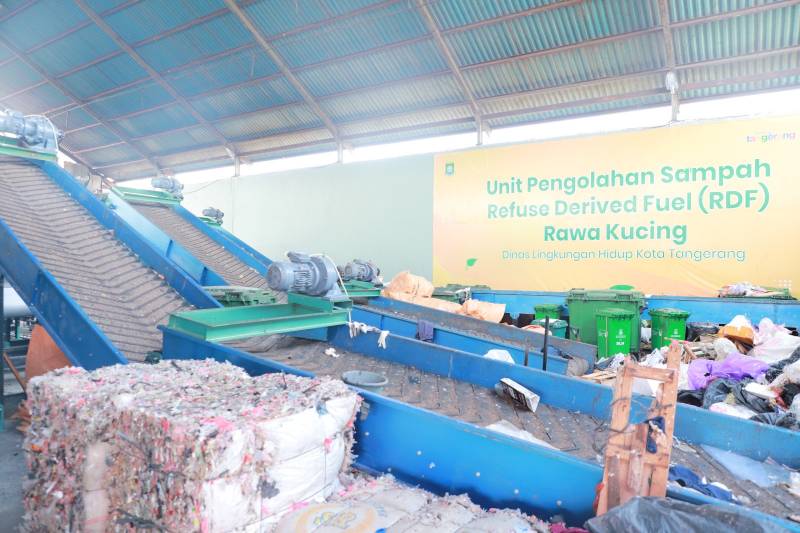Tangerang City, located in Indonesia's Banten province, is making significant strides in environmental sustainability through the adoption of integrated waste management technology. This initiative reflects the city's commitment to creating a cleaner, greener, and more livable environment for its residents.
Advancements in Waste Management Practices
The cornerstone of Tangerang's environmental efforts is the implementation of integrated waste management technology, particularly at the Rawa Kucing Final Disposal Site (TPA). Here, the city has introduced the Refuse Derived Fuel (RDF) system, which processes municipal solid waste into alternative fuel sources. This not only reduces the volume of waste but also contributes to energy production, aligning with sustainable development goals.
The RDF facility at Rawa Kucing operates two production lines, each capable of processing 25 tons of waste daily. Collectively, they convert approximately 50 tons of waste into 25 to 30 tons of RDF per day. This transformation of waste into energy exemplifies Tangerang's innovative approach to waste management.
Community Engagement and Decentralized Waste Collection
Recognizing the importance of community involvement, Tangerang has decentralized waste management responsibilities to local administrative units. By equipping 104 urban villages (kelurahan) with 208 motorized carts (bentor) and necessary personnel, the city empowers communities to actively participate in waste collection and management.
This grassroots approach ensures that waste is managed effectively at the source, reducing the burden on central facilities and fostering a sense of ownership among residents. Additionally, the city promotes the establishment of waste banks in each kelurahan, encouraging recycling and providing economic incentives for waste segregation.
Expanding Green Spaces and Urban Farming
Beyond waste management, Tangerang is dedicated to enhancing its green infrastructure. The city boasts 31 thematic parks and 230 green open spaces, serving as urban lungs and recreational areas for the community. These spaces not only improve air quality but also offer venues for environmental education and community gatherings.
Urban farming initiatives complement these efforts, with residents encouraged to utilize available spaces for cultivating vegetables, fruits, and medicinal plants. This practice promotes food security, reduces urban heat islands, and strengthens community bonds.
Future Outlook and Sustainable Development Goals
Looking ahead, Tangerang plans to expand its integrated waste management technology by introducing additional RDF facilities in other districts, such as the TPST Benua Indah in Karawaci. The city also aims to close temporary waste disposal sites along main roads, further streamlining waste management processes.
These initiatives align with broader sustainable development goals, positioning Tangerang as a model for other cities seeking to balance urban growth with environmental stewardship. Through innovative technology, community engagement, and a commitment to green spaces, Tangerang exemplifies how cities can transform challenges into opportunities for sustainable development.
Read More






 Friday, 27-02-26
Friday, 27-02-26







